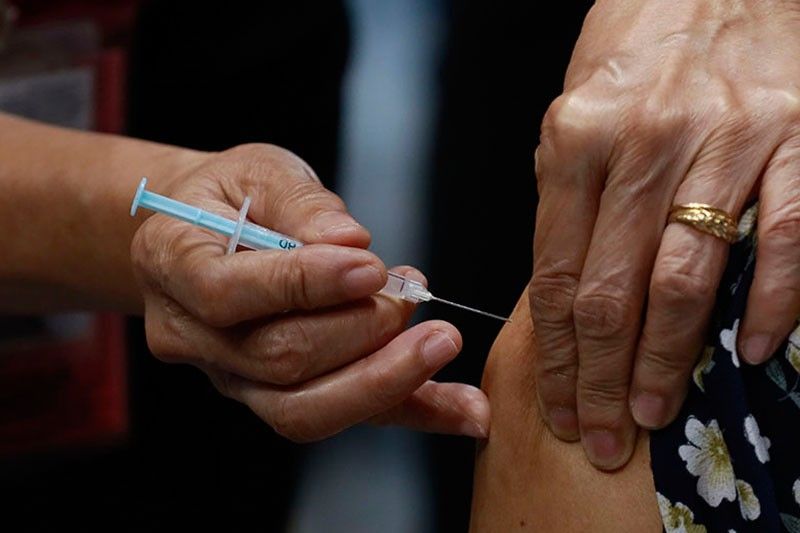DILG vows quicker delivery of vaccines to provinces

MANILA, Philippines — The Philippine National Police and Bureau of Fire Protection have been directed to work closely with the Department of Health and local government units to ensure the speedy delivery of vaccines to the provinces.
In a statement issued Wednesday morning, Interior Secretary Eduardo Año said that ensuring the fast delivery of the vaccines is critical to the goal of achieving four million jabs by the end of June.
As it currently stands, the government's lofty vaccination goal remains out of reach with the Philippines vastly lagging behind in that area relative to the rest of Asia.
“I’ve directed the PNP to secure these vaccines every step of the way and to ensure its fast delivery...Given the president’s directive, our ultimate goal is to ensure that the vaccines reach local governments as quickly as possible in good condition and that these vaccines are immediately utilized for inoculation,” he said.
“In [the National Capital Region], we strive to reach 120,000 jabs a day. This May, our target is two million vaccinations. This June, our target is four million vaccinations, so we really need not only to ramp up the vaccination efforts in LGUs, but also to ensure that more vaccines reach more provinces to meet our overall target."
Provincial and regional directors of the national police have also been directed to coordinate with the Department of Health in identifying police camps to be used as inoculation sites for the government's national vaccination program, PNP leadership said earlier Wednesday.
Vaccine czar Carlito Galvez continues to present only the country's total doses administered, under which the country is top 5 in Southeast Asia. As of the DILG's latest update:
- As of May 17, 2021, 7,149,020 out of 7,779,050 COVID-19 vaccine doses were already deployed to vaccination centers nationwide.
- Of these, 3,001,875 vaccine doses have been administered; 2,282,273 were given as a first dose while 719,602 doses were used for the second dose.
Per Our World in Data, though, the Philippines is among the worst countries in the world when it comes to vaccine per population.
Country lagging behind as a whole, but local governments urged to be more vigilant
Año in his statement however pinned the responsibility on local governments once more, saying that the DILG will closely monitor the vaccination performance of each LGU and will call the attention of those who are lagging behind.
“In coordination with the DOH, we will closely monitor the performance of the LGUs and we will require daily reports from them to ensure that they are meeting their targets,” he said.
Following the incident of wasted vaccines due to improper storage, Año urged all LGUs to strictly observe vaccine monitoring measures.
He also stressed the need for LGUs to report on the transportation mechanism for the vaccines, to monitor if said transportation is compliant with the requisite safe-handling of the vaccines.
“We cannot afford to waste any COVID-19 vaccine, given how precious these are, so I am counting on our PNP and BFP personnel to assist our LGUs in the safe and fast delivery of vaccines in various parts of the country,” he said.
In DILG Memorandum Circular No. 2021-052, LGUs are urged to comply with specific temperature ranges of COVID-19 vaccine refrigeration and ensure effective cold chain management. This entails temperature maintenance for transport and storage and administration of the vaccines.
The circular also directs LGUs to report on the transport mechanism for the vaccines to monitor if said modes of transportation are compliant with the requisite safe handling of the vaccines to avoid spoilage or wastage.
Año also reminded LGUs to develop a firm workflow for particular vaccine requirements from storage to transport and administration.
“In our goal to achieve herd immunity by the end of this year, we must ensure that every step in the vaccination process is properly executed,” he said.
To date, the Department of Health has recorded 1.15 million coronavirus infections in the country, 52,291 of whom are still classified as active cases.
— Franco Luna
- Latest
- Trending

































